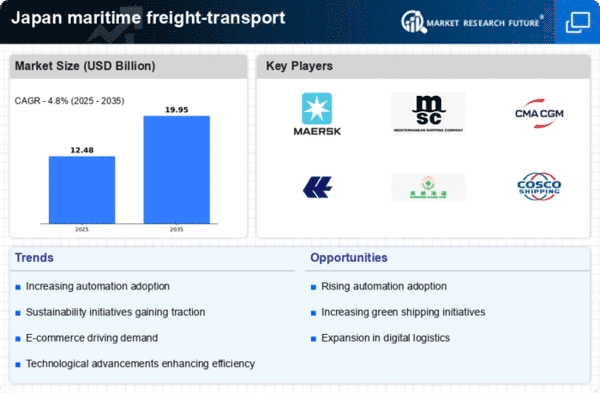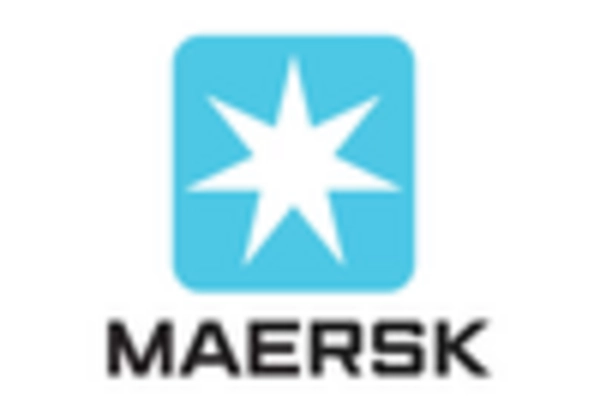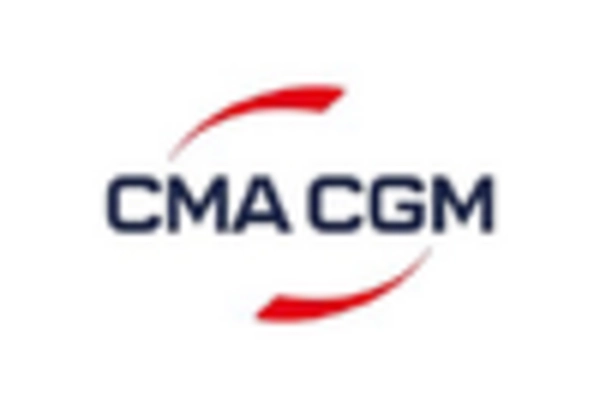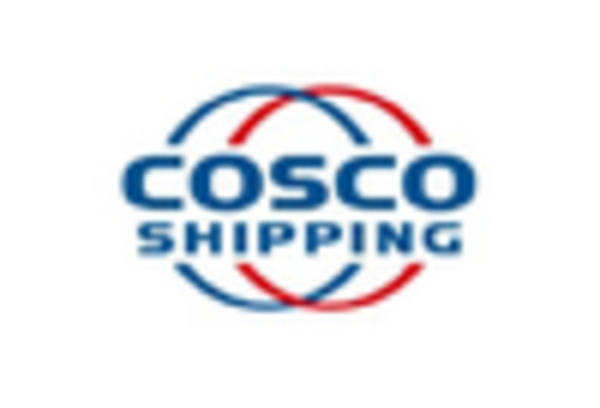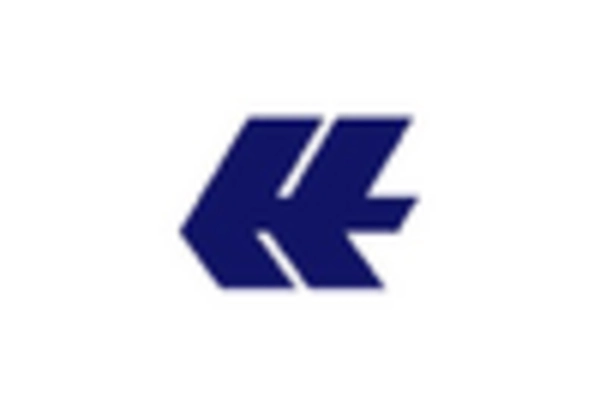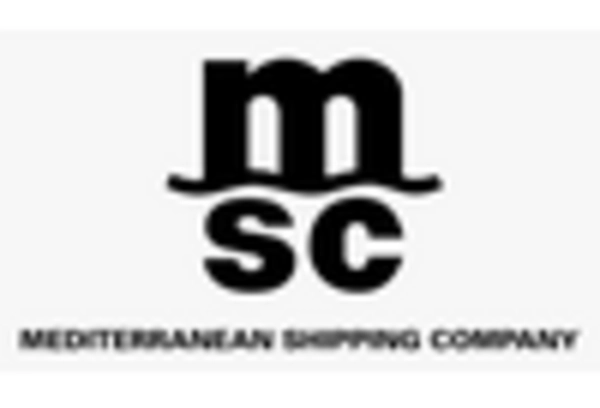Investment in Port Infrastructure
Investment in port infrastructure is a critical driver for the maritime freight-transport market in Japan. The government and private sector are channeling substantial funds into modernizing ports to accommodate larger vessels and improve operational efficiency. Recent initiatives include expanding container terminals and enhancing cargo handling capabilities. For instance, the Port of Tokyo is undergoing significant upgrades, which are expected to increase its capacity by 20% by 2026. Such investments not only facilitate smoother logistics but also attract more shipping lines, thereby enhancing Japan's position in the maritime freight-transport market. Improved infrastructure is likely to lead to reduced shipping costs and increased competitiveness in the region.
Technological Advancements in Shipping
The maritime freight-transport market in Japan is experiencing a notable shift due to technological advancements. Innovations such as automated cargo handling systems and advanced navigation technologies are enhancing operational efficiency. For instance, the integration of AI and IoT in shipping logistics is streamlining processes, reducing turnaround times, and minimizing human error. This technological evolution is projected to increase productivity in the maritime freight-transport market by approximately 15% over the next few years. Furthermore, the adoption of blockchain technology is improving transparency and security in transactions, which is crucial for maintaining trust among stakeholders. As Japan continues to invest in these technologies, the maritime freight-transport market is likely to see enhanced competitiveness on an international scale.
Growing Demand for Cold Chain Logistics
The maritime freight-transport market in Japan is witnessing a growing demand for cold chain logistics, driven by the rise in perishable goods trade. As consumer preferences shift towards fresh and frozen products, the need for efficient cold storage and transportation solutions becomes paramount. The market for cold chain logistics is expected to grow by approximately 12% annually, reflecting the increasing importance of maintaining product integrity during transit. This trend is particularly relevant for the seafood and agricultural sectors, which are vital to Japan's economy. Consequently, shipping companies are investing in specialized vessels and technologies to meet these demands, thereby enhancing their service offerings within the maritime freight-transport market.
Regulatory Compliance and Environmental Standards
In Japan, the maritime freight-transport market is significantly influenced by stringent regulatory compliance and environmental standards. The government has implemented various regulations aimed at reducing emissions and promoting sustainable practices within the shipping industry. For example, the International Maritime Organization's (IMO) regulations on sulfur emissions are compelling shipping companies to adopt cleaner fuels and technologies. Compliance with these regulations is not only essential for operational legitimacy but also impacts the market's growth trajectory. Companies that proactively adapt to these standards may gain a competitive edge, potentially increasing their market share by up to 10%. As environmental concerns continue to rise, the maritime freight-transport market must navigate these challenges while striving for sustainability.
Increased Trade Activities with Asia-Pacific Regions
The maritime freight-transport market in Japan is benefiting from increased trade activities with various Asia-Pacific regions. Japan's strategic location as a trade hub facilitates the movement of goods between countries such as China, South Korea, and Southeast Asian nations. In 2025, Japan's exports are projected to reach approximately $700 billion, with a significant portion transported via maritime routes. This surge in trade activities is likely to bolster the demand for shipping services, thereby enhancing the overall growth of the maritime freight-transport market. Additionally, the establishment of new trade agreements may further stimulate this sector, leading to increased shipping volumes and improved logistics efficiency.


